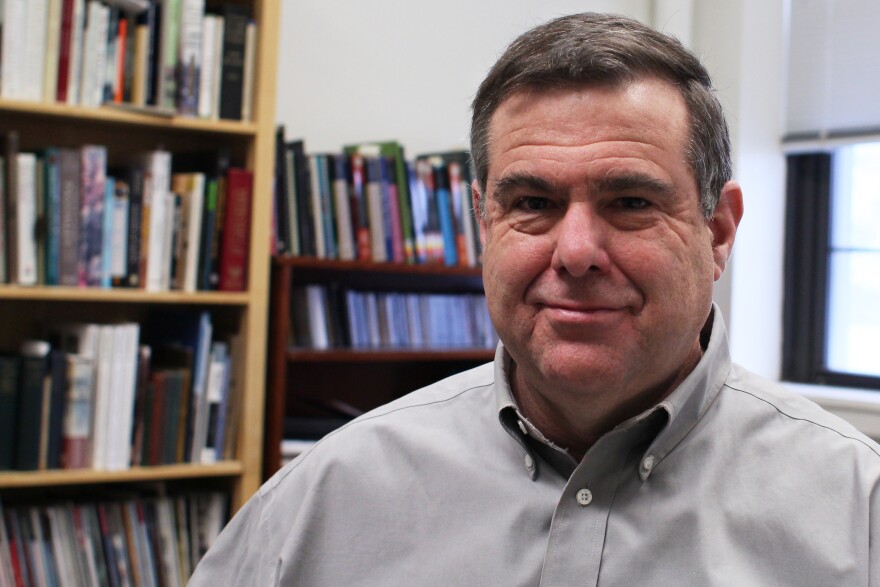Affton High School teacher Brian Jennings will never forget watching former student Dino Svraka record an oral history contribution for the Bosnia Memory Project a couple of years ago. He’s still struck by how Svraka, a Bosnian American, captivated his students.
“That justified everything I’ve ever tried to do as a teacher,” Jennings said.
Jennings teaches a class on Bosnian American history in partnership with the Bosnia Memory Project at Fontebonne University. He began the collaboration about five years ago after meeting the organization’s executive director, Ben Moore.
Soon, Moore plans to expand the program to a handful of other schools, thanks to a $100,000 matching grant from the National Endowment for the Humanities. Moore said the grant will give additional students an opportunity to help bridge gaps in St. Louis communities.

“Having high school students participate in this collection effort is to foster this intergenerational dialogue and to understand better those complex questions of identity that come about when a second generation is having a vastly different experience than what their parents went through,” he said.
Jennings said students who aren’t Bosnian Americans also stand to benefit from the program by learning about their Bosnian neighbors.
“To hear the stories of people that have come to this country for whatever reason has changed the ways that they see their community and their role in it, at least that’s the hope,” Jennings said.
At Affton, students have to sign up for the class. Moore said expanding it to a few other schools will expose additional students to the history of Bosnia and Bosnian Americans while having them participate in research. Students will collect oral histories and artifacts from Bosnian genocide survivors. They will then oversee placement of the recordings and objects into the project’s home at Fontebonne University.
Moore said he sees real effects of the work outside of the classroom.
“One of the things that we see through the collection of these oral histories is neighbors who are interacting, across often religious differences and cultural differences,” he said.
To secure the NEH funding, the Bosnia Memory Project must raise an additional $100,000 from individual donors, sponsors and institutions. While the organization plans fundraising efforts, it will be developing plans to implement the new programming and seek collaborators in area high schools with significant Bosnian American populations.
Jennings said the experience of watching his class absorb Svaraka’s stories taught him that the work isn’t just teaching about the past. It's also about building something for the future.
“I like to tell them not only are they learning history, they’re making history," he said.
Follow Willis on Twitter: @WillisRArnold





